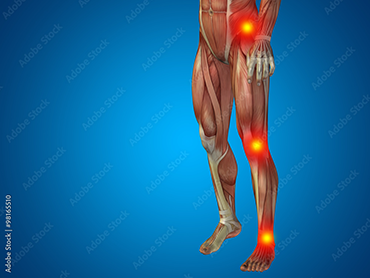
FitAssess for Personal Trainers


Overall, musculoskeletal assessments are an essential tool in a personal trainer’s toolkit, helping them provide safe, effective, and individualized training programs that promote both fitness and overall well-being.
Understanding skeletal muscle and its functions is vital for all personal trainers to complete everyday tasks such as instructing exercise, assessing a clients movement, correcting exercise technique, carrying out fitness tests and designing training programmes.
For example when working with clients who want to achieve goals such as improving their upper body strength or hill running stamina, then it is vital that you have a sound knowledge of the muscles that work, what stresses to place them under, what exercises to prescribe to work them, what variables (sets, rest, load) will produce the optimal outcomes, and what adaptations to expect.
- Identifying Imbalances and Weaknesses: Musculoskeletal assessments help trainers identify any muscle imbalances or weaknesses in their clients’ bodies. These imbalances can lead to poor movement patterns and increase the risk of injuries during exercise.
- Maximizing Performance: By understanding a client’s musculoskeletal strengths and weaknesses, trainers can optimize their performance in specific sports or activities. Tailoring training to address individual limitations can lead to better athletic performance and reduced risk of overuse injuries.
- Gaining Client Trust: Conducting thorough musculoskeletal assessments demonstrates a trainer’s professionalism and commitment to their clients’ well-being. Clients are more likely to trust trainers who take the time to understand their bodies and design programs tailored to their needs.
- Referral to Healthcare Professionals: In some cases, musculoskeletal assessments may reveal underlying issues that require medical attention. Trainers can refer clients to appropriate healthcare professionals for further evaluation and treatment, ensuring that potential health concerns are addressed.